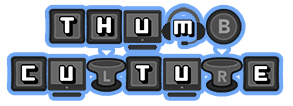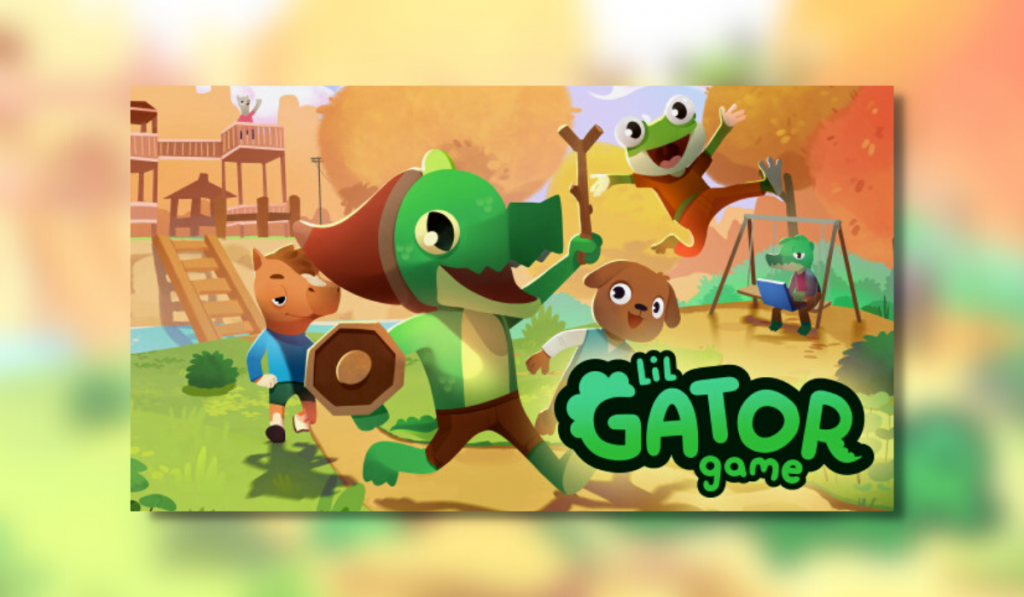
Every now and again a game is released that I completely underestimate at first glance. I’m not sure if it’s down to some residual peer pressure in my head. Sometimes, in my imagination, I have the critical eyes of certain friends looming over my shoulder when I start up a game. So if the game is a little too colourful and happy-looking then my own fickle decision-making weakens and prostrates itself to my friends’ illusionary judgement. I looked at the pictures and announcement video of Lil Gator Game and thought on some level that it wasn’t necessarily for me. I wanted something a little less whimsical. But I was wrong. It’s difficult to realise without playing it, but Lil Gator Game is a triumph. It’s one of those games with a universal appeal—like Donut County, or Katamari Damacy. And, contrary to my first initial reservations, it has plenty of hidden depth.
A GATOR AID FOR THE SOUL
Gameplay is an electric-shock duo of delight, being both fun and rewarding. The fun is realised through a diverse moveset that may even surpass that of Breath of the Wild, the unashamed inspiration for at least part of the game. In addition to Link’s climbing, gliding and shield surfing, the little gator can ragdoll collapse (surprisingly good for performing flips), swim rapidly like the alligator he is, and launch into the air with a fistful of balloons. The result of this clearly heavily-polished set of controls—alongside the refreshing reality that you can’t die—is that exploring the island and completing quests is a smoother, quicker and in many ways more purely fun version of what was found in Nintendo’s magnum opus.
I enjoyed the time I collapsed off a pier, swam through the water with the grace of an amphibian, then launched into the air with a mouthful of bubble-gum. I popped the gum, glided to the side of a mountain, climbed up, launched off, then swooped back down to solid ground, where I talked to a bull who was embarrassed about how his fur might get ‘floofy’ if he got in the water. The bull’s main concern was impressing a nearby sheep he wanted to make friends with.
It’s in these interactions with the animals where the second great pillar of the gameplay duology establishes itself. Most animals set you a task or a refreshingly-non-tedious fetch quest, and their interactions with you are blessed with impressive wit, relatability, and emotion-tickling weight. You explore a fully-realised island park, featuring animalised adults, cool kids, and passionate geeks—all created with such delightfulness that the game quickly wraps its jolly arms around your soul and pulls you deeper into the experience.
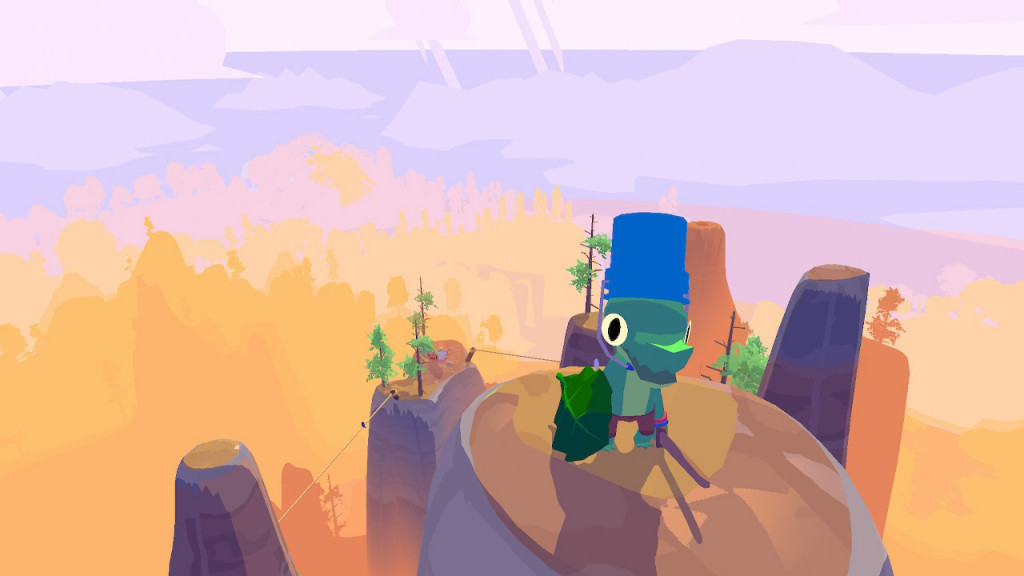
Breath of the Parkland
The story illustrates the game’s excellent and easy-to-underestimate design. There’s a really tight unity that seeps into the gameplay and sense of progression. The lil gator and his sister grew up loving an in-game Zelda-like franchise, and his sister used to organise imaginative roleplaying games that the pair would act out around their island home, using pretend swords and shields to fight battles against cardboard enemies. The lil gator cherished these games—so much so that visible echoes of his memories are scattered around the island—frozen snippets you come across as you explore, which is a lovely narrative touch from the developers, MegaWobble. These games stopped when the gator’s sister went to college. Now she’s back for a visit, but she’s too engrossed in her coursework to play. You decide to lure her away from her laptop by having so much fun around her that she’ll want to join in. That would be easier to achieve if your best friends—a frog, a horse, a dog—weren’t distracted by their own issues related to growing up: doing project work to get into a new school, or maintaining friendships with the resident cool kids. There’s nobody left to help you on your task. Everyone has outgrown you.
The lil gator wants everyone to go back to how they used to be. He sets about doing so with a level of enthusiasm that charmed me to my core. The passionate little gator tries to convert not just his friends and sister, but the whole island into playing with him. After all, the more fun going on around his sister, the more pressure there’ll be on her to join in. But this explosion of forthright innocence and courage often pushes the little gator out of his comfort zone. Thus, the little gator is growing up too, whether he likes it or not.
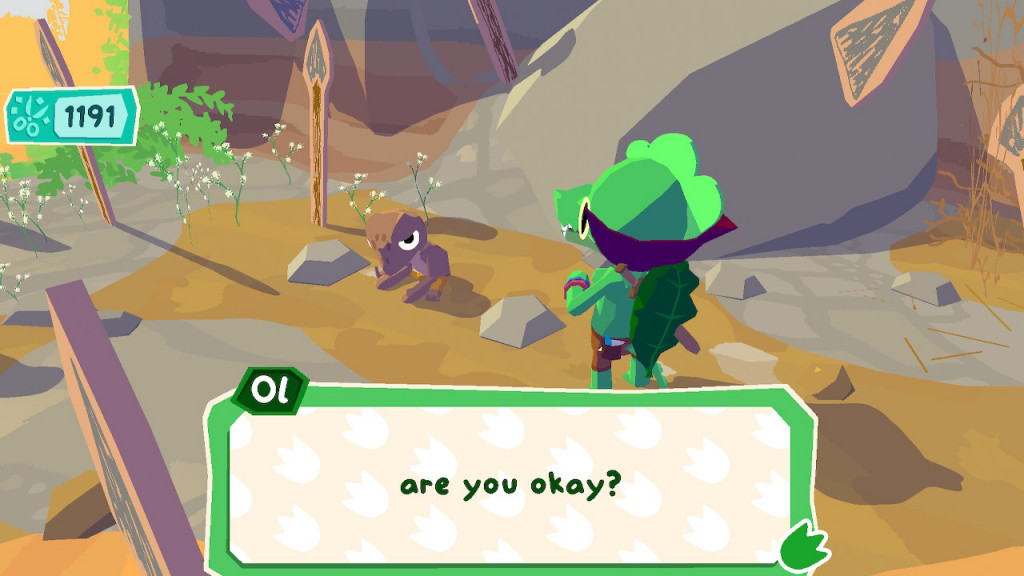
Good Decisions Everywhere
Lil Gator Game builds an ever stronger impression of its quality the longer you play. It’s funnier and more full of heart than I expected, and more varied. There are a lot of engaging animals to find and interact with, a good blend of tasks to do, and—although the game is set on one medium-sized island—enough variety in the locations to keep things interesting. The music changes often, and sets just the right tone. The colourful graphics bring the island and its inhabitants to life—with very special mention to the gator’s animations. His energy is lovingly realised in his gleeful waddle, or in his joyful swinging of whichever in-game weapon he’s using to smash the cardboard-cut-out enemies. He wiggles his little legs as he glides. He talks to the other characters with a well-depicted earnestness—and, when he’s pressured a little too much, with a pathos-inducing look of stress.
The only possible negative I can think of is so insignificant I almost don’t want to write about it, but for the sake of balance I will. There were times during the first hour where I mildly stressed about successfully navigating around the island. I felt a little lost. Unlike most games, there’s no option to press a button to open a map. There’s an interesting explanation though: maps exist in the game world itself as real ‘physical’ maps—on wooden stands next to playgrounds or near the radio tower, just like they would be in any real-life equivalent. It’s a bold design choice that I ultimately respect. I needed a moment to orientate myself to the landmarks and their positions, but then I was fine. Ultimately, the maps made the game world feel more authentically real, and they placed me even more into the mind of the little gator.
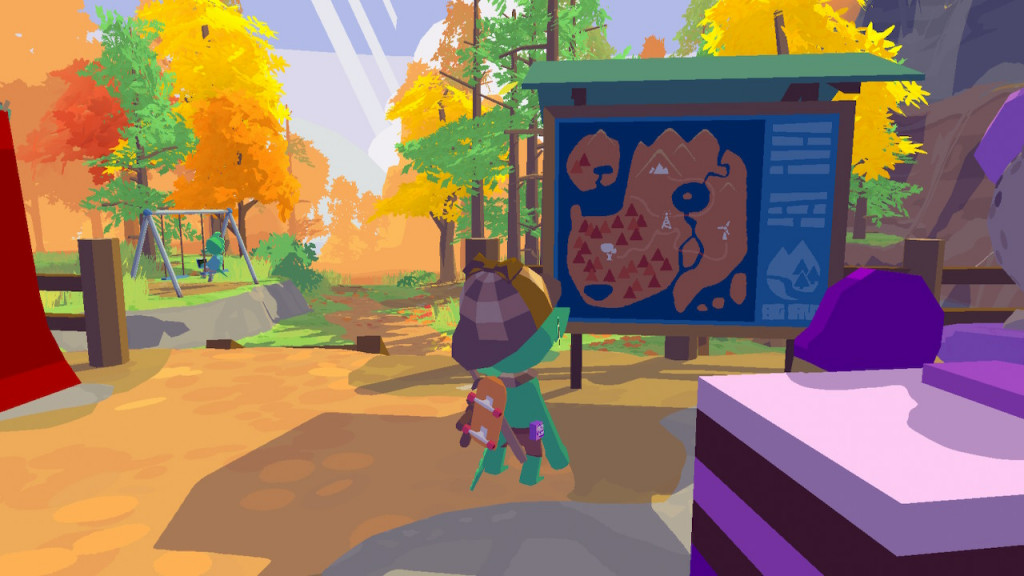
Conclusion
Lil Gator Game will take about five hours to finish 100%, which I did without thinking thanks to some perfectly-timed, clever late-game item additions. Overall, Lil Gator Game is a memorable experience from start to finish and I’m still carrying a little bit of its charm around with me as I go about my days.
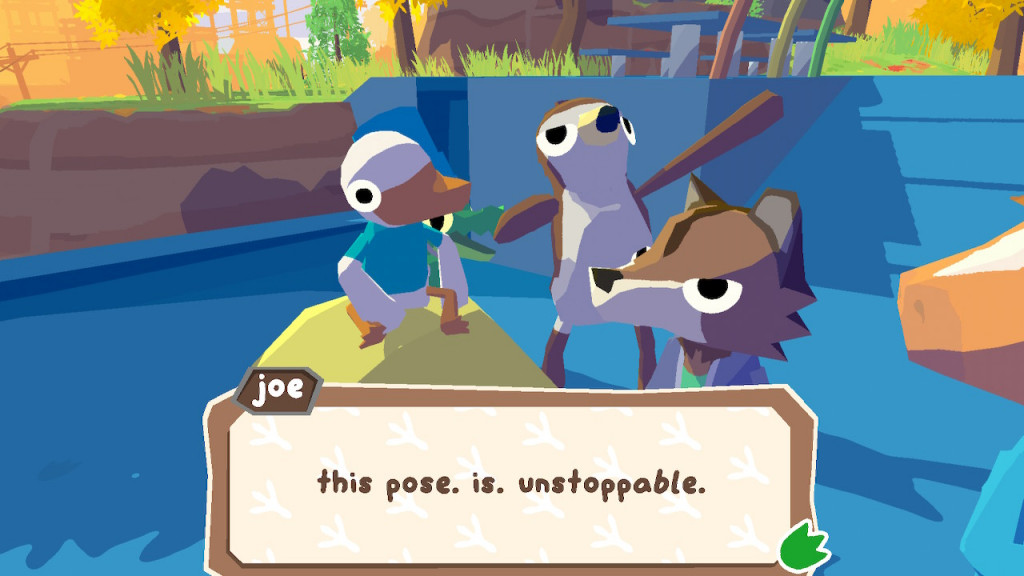
Stumbling upon the next group of eccentric animals—helping them with their science projects, convincing them they don’t have to fake being cool all the time—was a delight. And I realise that something a little meta has happened: the lil gator helped me to loosen up, move on from my doubts, and give myself over to having fun. Somewhere down the line, I’d love to see more—Teen Gator Game, 20s Gator Game, Middle-Aged Gator Game. The amount of humanity and inventiveness wrapped up in such a small package is notable. Ultimately, I’m sure whatever MegaWobble do next will be interesting.
Lil Gator Game is joyous, and it’s a shoe-in for the top gong, the Thumb Culture Platinum Award.

Disclaimer: A code was received in order to write this review.
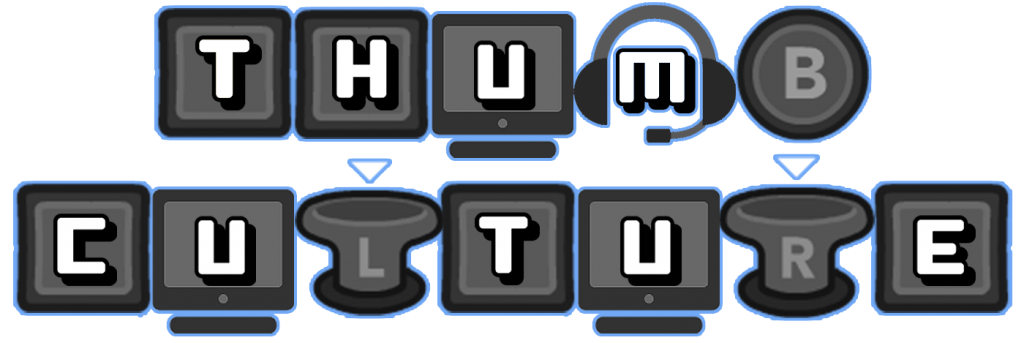
YouTube | Facebook | Twitter | Instagram | Discord | Podcast
